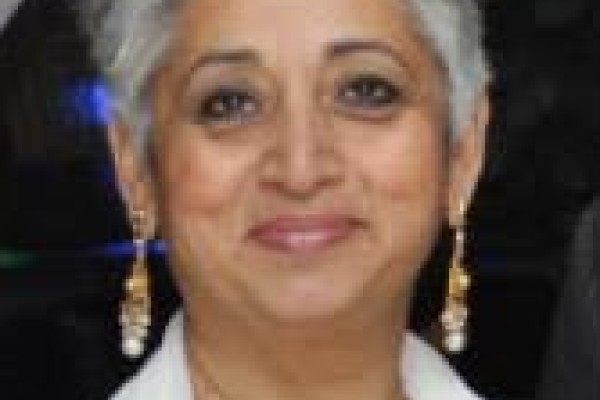
Leveraging Conflict for Constructive Change
Restorative Justice · Design Thinking · Artificial Intelligence · Justice, Equity, Diversity, Inclusion
They Are All Connected
Monday, February 26, 4:00-5:30pm, Duke North 2002
Refreshments to follow
Academic Medicine, with all its complexities, naturally includes conflict amongst its crucial collaborators – trainees, faculty, staff, communities and more. 21st century leadership skills require all of us to strategically leverage components of this conflict for constructive change, with intentional and thoughtful actions. This talk will weave together themes from restorative justice and design thinking; and how they can be applied to artificial intelligence and JEDI (justice, equity, diversity, and inclusion), offering a case for new ways of leveraging conflict to advance a culture of connectedness and belonging.
About the Speaker: Sonoo Thadaney Israni, MBA, Founding Executive Director, Stanford Presence Center, Department of Medicine’s Program in Bedside Medicine, Co-Founder, Stanford Restorative Justice Hub, Co-Leader, USD Rx for RJ Initiative & AAMC RJ Coursework. Sonoo Thadaney Israni is the founding executive director of the Stanford Presence Center. After more than 25 years in Silicon Valley Tech, she is now a Stanford intrapreneur, building academic and applied science centers, programs, and initiatives. A thought leader in artificial intelligence in healthcare, she co-lead the National Academy of Medicine’s Working Group on Artificial Intelligence, publishing the 2019 “AI in Healthcare: The Hope, The Hype, The Promise, The Peril.” Justice, Equity, Diversity and Inclusion (JEDI) are at the core of all of Ms. Israni’s work. She helped develop and now co-leads the curriculum for the AAMC Restorative Justice in Academic Medicine curriculum. She also launched the Stanford RJ Hub, which engages stakeholders deploying restorative practices across seven schools and units. Her restorative justice and conflict resolution work engages participants to prevent, resolve, and leverage conflict while furthering purposeful decision-making, leadership development, and organizational vitality. Her scholarly work makes the case for interconnectedness between restorative justice, JEDI, AI, and tech.